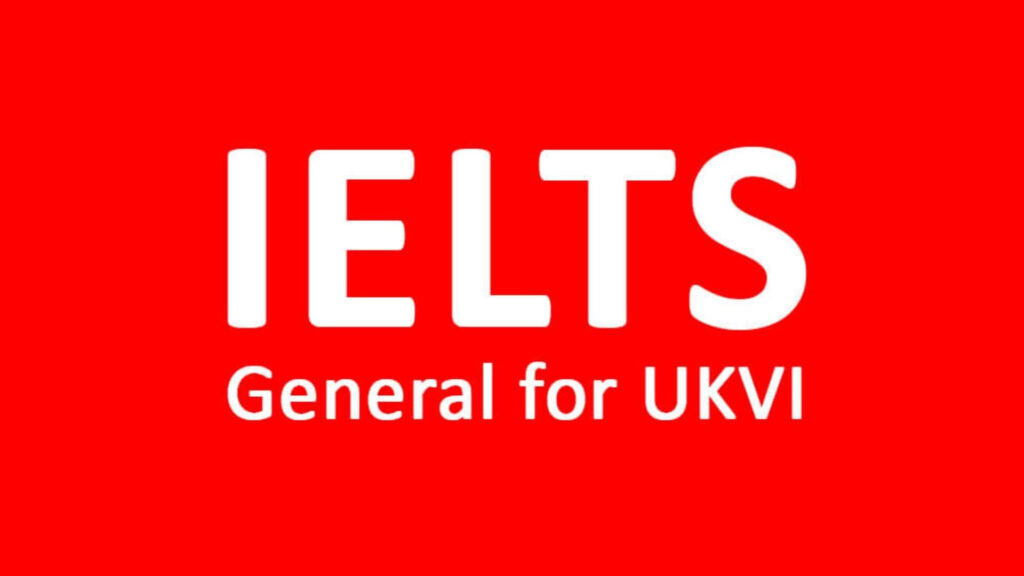Understanding IELTS Essay Writing Questions
Table of Contents
When preparing for the IELTS exam, mastering IELTS Essay writing questions is a crucial step toward achieving a high band score. These questions are designed to test a candidate’s ability to express opinions, provide arguments, and present logical ideas in response to specific topics. Whether it’s agreeing or disagreeing with a statement, discussing advantages and disadvantages, or analyzing a problem and suggesting solutions, IELTS Essay writing questions challenge candidates to showcase their proficiency in English. By practicing various IELTS Essay writing questions, learners can enhance their critical thinking, improve their writing structure, and develop a deeper understanding of diverse topics. Therefore, dedicating time to mastering IELTS Essay writing questions is essential for success in the writing module.

There are four types of IELTS essay questions
- Opinion essay
- Discussion essay
- Advantage and disadvantage essay
- Other types of essays
Opinion Essay
An IELTS opinion essay is a type of writing task in the IELTS Writing Task 2 section where test-takers are asked to present and justify their opinion on a given statement or question. The essay requires candidates to clearly state whether they agree, disagree, or partially agree with the topic, and support their viewpoint with well-structured arguments, examples, and logical reasoning.

It assesses the candidate’s ability to articulate their ideas, use appropriate language, and organize their thoughts cohesively. Common phrases like “To what extent do you agree or disagree?” often signal an opinion essay in the IELTS exam. Opinion essay could be represented in five ways.
- What is your opinion about this?
- Do you agree or disagree?
- To what extent do you agree or disagree?
- Does the advantage outweigh the disadvantage?
- Is this a positive or a negative development?
Sample questions on Opinion essay
- Government and Environment
Some people believe that governments should impose a higher tax on fast food to reduce health problems. To what extent do you agree or disagree? - Technology and Relationships
Some people think that technology has made our lives more connected, while others believe it has isolated us. Do you agree or disagree? - Education System
Some people believe that exams are not an effective way to measure students’ abilities. Do you agree or disagree? - Work-Life Balance
Some people believe that employees should be given more vacation time to improve their productivity. To what extent do you agree or disagree? - Globalization and Culture
Some people feel that globalization is destroying local cultures. Do you agree or disagree? - Sports and Society
Some people think that hosting international sports events is beneficial for a country, while others think it causes more problems than benefits. Do you agree or disagree? - Social Media Influence
Social media has a negative impact on both individuals and society. To what extent do you agree or disagree? - Animal Testing
Some people believe that testing products on animals is necessary, while others argue that it is cruel and should be banned. What is your opinion? - Free Public Transport
Some people think that public transport should be free to reduce traffic congestion and pollution. Do you agree or disagree? - Parenting and Education
Some people believe that parents should be responsible for teaching their children to be good members of society, while others think schools should take on this role. To what extent do you agree or disagree?
Here are five opinion IELTS essay questions using the “Do the advantages outweigh the disadvantages?” format:
- Technology and Communication
Some people believe that the widespread use of mobile phones has improved communication, while others argue it has led to social isolation. Do the advantages outweigh the disadvantages? - Online Education
The rise of online learning has made education accessible to more people. However, some argue that it lacks the quality of traditional classroom education. Do the advantages outweigh the disadvantages? - Working from Home
Many people now work from home due to advancements in technology. While this offers flexibility, it can also blur the boundaries between work and personal life. Do the advantages outweigh the disadvantages? - Tourism and Culture
International tourism has grown significantly in recent decades, bringing economic benefits but also cultural and environmental challenges. Do the advantages outweigh the disadvantages? - Renewable Energy
The use of renewable energy sources, such as solar and wind power, is increasing worldwide. While these are environmentally friendly, some argue they are costly and unreliable. Do the advantages outweigh the disadvantages?
Here are five IELTS essay questions in the “Is this a positive or a negative development?” format:
- Social Media Usage
The increasing use of social media for communication is replacing face-to-face interaction among people. Is this a positive or a negative development? - Online Shopping
The popularity of online shopping has led to the decline of physical retail stores in many cities. Is this a positive or a negative development? - Automation and Employment
The use of robots and automation in industries is rapidly increasing, reducing the need for human labor. Is this a positive or a negative development? - Urbanization
More people are moving to urban areas in search of better opportunities, leading to overcrowded cities. Is this a positive or a negative development? - Early Exposure to Technology
Children are being exposed to technology, such as tablets and smartphones, at an early age. Is this a positive or a negative development?
IELTS Advantages and Disadvantages Essay

An IELTS advantages and disadvantages essay is a common type of Writing Task 2 question where you are required to discuss both the positive and negative aspects of a specific issue, trend, or idea. A strong response needs a clear introduction, body paragraphs for advantages and disadvantages, and a conclusion summarizing the key points. Supporting your arguments with examples and reasoning is essential to achieve a high band score.
Five Sample IELTS Advantages and Disadvantages Questions
- Work Abroad
In recent years, more people are choosing to work abroad for better opportunities. Discuss the advantages and disadvantages of working in a foreign country. - Technology in Education
Many educational institutions now use digital technology to deliver lessons. What are the advantages and disadvantages of this trend? - Urban Living
The number of people living in urban areas is increasing. Discuss the advantages and disadvantages of living in a city. - Online News vs. Print Media
With the rise of the internet, more people prefer to read news online rather than in print. What are the advantages and disadvantages of this change? - Remote Work
The COVID-19 pandemic has accelerated the adoption of remote work by many companies. Discuss the advantages and disadvantages of working from home.
Discussion Essay

A discussion essay is a common question type in the IELTS Writing Task 2, where you are asked to discuss both sides of an argument and provide your opinion. Unlike an opinion essay, which focuses mainly on defending your perspective, a discussion essay requires a balanced approach. You must present both viewpoints objectively, analyze their merits or demerits, and then clearly state your opinion, typically in the conclusion.
Five Sample IELTS Discussion Essay Questions
Public Health and Diet
Some people think that governments should regulate the fast-food industry to improve public health, while others believe individuals should take responsibility for their own dietary choices. Discuss both views and give your opinion.
Education Methods
Some people believe that children should learn through traditional methods such as books, while others think that digital technology is the best way to learn. Discuss both views and give your opinion.
Wealth and Happiness
Some people think that being wealthy brings more happiness, while others believe it does not guarantee a happy life. Discuss both these views and give your opinion.
Climate Change Responsibility
Some people believe that individuals are responsible for reducing environmental damage, while others think it is the responsibility of governments and large companies. Discuss both views and give your opinion.
Role of Arts in Society
Some people argue that art is a necessary part of education, while others believe it is a waste of time and resources. Discuss both sides and give your opinion.
Other Types of IELTS Essays
This type of essay is distinct from opinion, discussion, or advantages/disadvantages essays. It typically asks you to address a specific problem and propose solutions or to respond to two related questions. The essay requires a clear structure, including identifying the problem(s), analyzing its causes or effects, and suggesting actionable solutions. Alternatively, it may involve answering two questions, requiring balanced attention to both.
Five Sample Questions
- Pollution
Pollution levels in cities are increasing rapidly. Discuss the causes and suggest some measures to reduce this problem. - Obesity
Childhood obesity is a growing issue in many countries. What are the reasons for this problem, and how can it be tackled? - Traffic Congestion
Many cities face severe traffic congestion. What are the causes, and what measures can be taken to address this issue? - Illiteracy
In many developing countries, illiteracy remains a significant challenge. Discuss the problems caused by illiteracy and suggest effective solutions. - Work-Life Balance
Maintaining a work-life balance is becoming increasingly difficult for people. What are the causes of this issue, and how can it be resolved?
IELTS Sample Written Essays

Some people believe that governments should impose a higher tax on fast food to reduce health problems. To what extent do you agree or disagree?
Fast food has become an integral part of modern lifestyles, but its overconsumption has been linked to health issues such as obesity, diabetes, and heart disease. Some people argue that imposing higher taxes on fast food is an effective way to reduce health problems. While this measure has its merits, I believe it is only partially effective and needs to be complemented by other strategies.
Increasing taxes on fast food can discourage excessive consumption, especially among price-sensitive groups. For instance, in some countries, higher taxes on sugary drinks have led to a noticeable reduction in their sales. A similar approach to fast food could encourage people to reconsider their dietary choices and opt for healthier alternatives. This could contribute to lowering rates of diet-related illnesses, easing the financial burden on healthcare systems. For example, research in Mexico demonstrated that a “soda tax” reduced consumption of sugary beverages by 7.6% in the first year of implementation.
However, higher taxes alone may not address the root causes of unhealthy eating habits. Low-income families often rely on fast food because it is inexpensive and convenient. If fast food becomes more costly, these individuals might face financial strain rather than improved health outcomes. Moreover, education plays a critical role in fostering healthier choices. For instance, public awareness campaigns, like those promoting balanced diets in schools, have shown significant results in changing behavior. Without addressing nutritional knowledge and accessibility to affordable, healthy food, higher taxes may have limited impact.
In conclusion, while imposing higher taxes on fast food can be a step toward reducing health problems, it is not a comprehensive solution. A combination of taxation, education, and improved access to healthy food options is necessary to promote long-term dietary changes and tackle health issues effectively.
Another sample essay
Some people believe that the widespread use of mobile phones has improved communication, while others argue it has led to social isolation. Do the advantages outweigh the disadvantages?
The widespread use of mobile phones has undoubtedly transformed the way people communicate. Some argue that mobile phones have greatly enhanced communication, while others believe they have led to social isolation. While mobile phones have several advantages, such as convenience and accessibility, I believe that the negative effects, particularly on face-to-face interactions, outweigh the benefits.
On the positive side, mobile phones have made communication more efficient and accessible. People can now easily stay connected with friends, family, and colleagues, regardless of their location. For instance, mobile apps like WhatsApp and Skype allow users to make voice and video calls for free, bridging the distance between loved ones and business partners. In emergency situations, mobile phones can be lifesaving, allowing individuals to seek help quickly. Additionally, mobile phones have revolutionized work and education, enabling remote work and online learning, which became especially crucial during the COVID-19 pandemic.
However, despite these advantages, mobile phones have contributed to social isolation. Many people, especially younger generations, prefer texting or using social media rather than engaging in face-to-face conversations. This shift has led to a decline in meaningful, in-person interactions, which are essential for building strong relationships. For example, studies have shown that excessive phone use among teenagers has been linked to increased feelings of loneliness and depression. The ease of communicating through mobile phones can make it tempting to neglect direct social interactions, which are vital for emotional well-being.
In conclusion, while mobile phones have undoubtedly improved communication in many ways, they have also led to social isolation by reducing face-to-face interactions. The disadvantages, particularly the emotional and psychological impacts, outweigh the advantages. To mitigate these effects, it is important to balance the use of mobile phones with meaningful in-person connections.
For details about the written sample essays, please check here. Also, click for IELTS marking guide: Task Achievement, Coherence and Cohesion, Lexical Resources, and Grammatical Range Accuracy
This link contains more sample questions on IELTS essay





